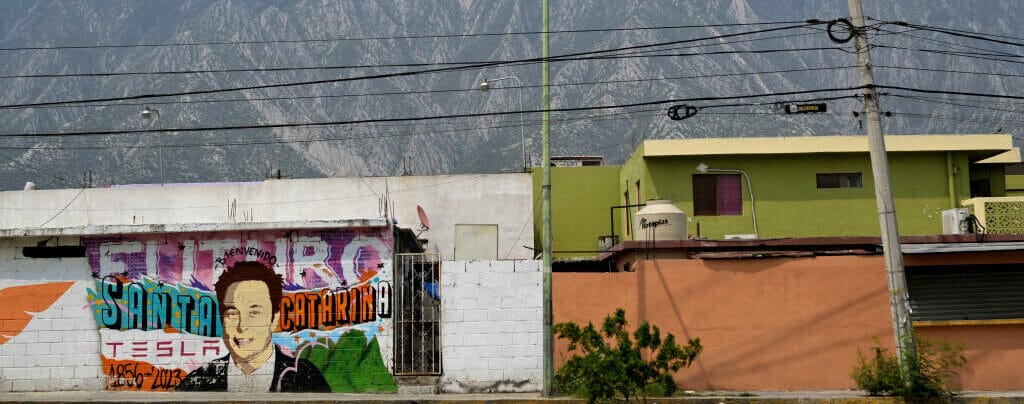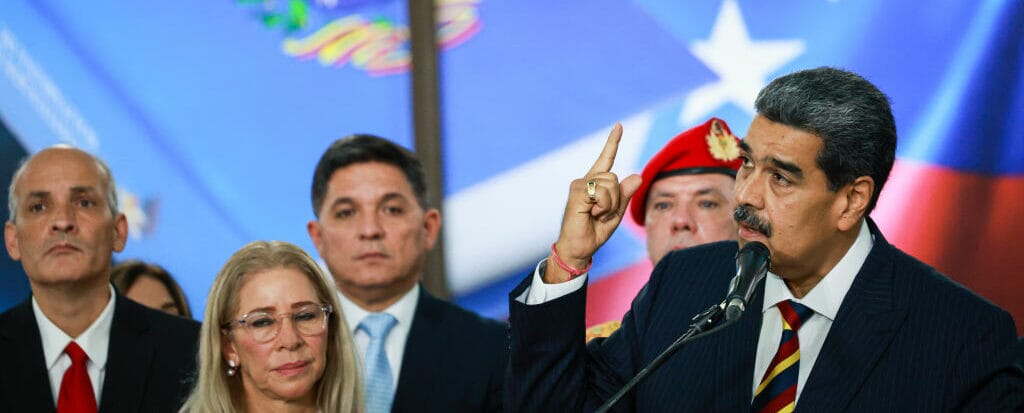News
Is Mexico set to open the green energy investment door?

Renewable energy investors will be paying close attention to Claudia Sheinbaum’s emerging economic policies to see whether the new president of Mexico makes good on pre-inauguration commitments to encourage foreign investment in sustainable power sources, a largely untapped sector of the economy.
But as one energy investment door appears to be opening as the Sheinbaum presidency prepares to get under way, another shows little sign of budging, with Mexico’s substantial hydrocarbon market likely to remain dominated by the troubled state oil company Pemex, for the foreseeable future.
Renewables could more than meet energy needs
Mexico relies on fossil fuels for nearly 80 percent of electricity generation, with wind and solar constituting just 12 percent of the mix. This is the current reality despite the country possessing enormous potential to develop renewable energy projects, according to the US government agency the International Trade Administration. Indeed, the Economist has suggested that solar, wind, geothermal, and hydropower potential capacities are enough to meet the country’s electricity needs a hundred times over.
Sheinbaum’s record as an advocate of clean energy and her climate science expertise would indicate that she will be open to private investment to build green power capacity, not least because the new government’s ability to finance new projects will be limited by its focus on reducing the sizeable, economy-dragging budget deficit, the largest since the 1980s.
There is no doubt that under Sheinbaum’s predecessor Andrés Manuel López Obrador (AMLO), investment in Mexico’s renewables lagged significantly. Sheinbaum, who won a landslide electoral victory in June, has signalled a desire to reverse that trend. Yet it is too early to have a sense of the speed and extent of any reversal, as her party Morena may remain under the influence of its founder, AMLO, an arch-protectionist, despite officially retiring from politics.
Investors face elevated rule of law risks
In the general elections that brought Sheinbaum to power, Morena won a supermajority in congress, giving the party broad legislative power to rewrite the country’s constitution. Many prospective investors will have been alarmed by Morena’s first post-election legislative actions, which have elevated already significant rule of law risks in the country that have in the past raised concern amongst the investment community.
Corruption and impunity have long blighted the country’s judiciary, but recently passed constitutional reforms will not only do little to address these red flags, but also introduce a further one. New judicial amendments will require the election, rather than the appointment, of nearly 7,000 federal judges – including those on Mexico’s Supreme Court. In doing so, some observers believe the amendment will undermine the independence of the judiciary. This could lead to judicial decisions being vulnerable to political influence, potentially causing significant delays, retrials, and legal uncertainties for cases involving human rights and private investments.
Mexico’s big neighbours, the US and Canada, have already warned that the judicial reforms might harm trade ties and investment. In particular, they may threaten the post-pandemic nearshoring that Mexico has been counting on as well as negotiation of the US-Mexico-Canada Agreement, USMCA, a critical free trade deal. Sheinbaum supported the constitutional reforms, but the viability of her green energy plans will be tested if court decisions begin deterring investors.
AMLO favoured fossil fuels over clean energy
Low-carbon sources of power gained ground in the 2010s prior to the election of AMLO to the presidency in 2018, then under his leadership largely took a back seat to fossil fuels in the energy mix. Investors interested in gaining a stake in the renewables sector were often thwarted, as he tended to resist their entry, delaying permits for projects and cancelling auctions.
He was even more protective of Mexico’s oil sector, dominated by Pemex, which benefited from generous subsidies, despite soaring debts. Sheinbaum understands that she will need to better manage the troubled energy giant to give her the bandwidth and political capital to pursue her ambition of making renewable power “the hallmark” of her government.
A heavy polluter, Pemex seemingly reflected Mexico’s woeful record on greenhouse gas emissions during AMLO’s term in office. The country has no net-zero target, despite being prone to heatwaves, droughts and hurricanes that with continued global warming will increasingly pose a socio-economic threat to the country. The consequences of climate change have already seriously impacted Mexico’s agriculture and has been fuelling migration.
With AMLO’s hold over Morena, Sheinbaum will be reluctant to challenge the pre-eminence of the state in the hydrocarbon field, even though a loosening of its effective monopoly would make economic sense, generating more tax revenue for a hard-pressed finance ministry. Any attempt to undercut Pemex’s market-leading position would very likely be resisted by Moreno’s congressional supermajority and risk undermining Sheinbaum’s standing within her party.
Sheinbaum plans to restructure Pemex’s $100 billion-plus debts and consolidate its presence in the energy sector, with its role possibly extended to petrochemicals, fertilizer production, and lithium and geothermal ventures. Despite its debts, the company remains a big player in the economy and, for many Mexicans, symbolises energy sovereignty. Relatedly, Sheinbaum will look to strengthen the country’s refining capacity to promote energy self-sufficiency.
Sheinbaum committed to decarbonisation
Yet the renewables market offers Sheinbaum an opportunity to diversify the country’s power sources, as it has become too dependent on oil and gas, putting its energy security at risk. This comes at a time when Pemex’s own production has fallen by almost 40 per cent in the last six years. Moreover, as a climate scientist, with a commitment to decarbonisation, she is acutely aware of the costly, climate-induced environmental problems that Mexico suffers. Indeed, as mayor of Mexico City, she sought to promote clean energy initiatives, overseeing electrified transport systems and a major solar panel project generating power for thousands of homes.
During her presidential campaign, Sheinbaum pledged to increase renewables production, currently 15 percent of the energy market, by up to 50 per cent over the course of her six-year term. She said she would significantly step up investment in solar and wind projects and modernise hydro-electric power plants, as part of a national energy plan.
At the same, she has pledged to strengthen the public electricity company Comisión Federal de Electricidad (CFE). Private producers will be allowed to gain a bigger share of the electricity market, but the state utility’s role as the mainstay of power transmission and distribution will remain – with Sheinbaum wanting it to draw on more renewable sources for electricity generation.
New officials underline sustainability ambitions
Her cabinet appointments give a sense of her direction of travel. There are, as you might expect, political appointees loyal to Morena and AMLO, but Sheinbaum has signalled a willingness to professionalise her administration by focusing on expertise over loyalty – especially in the areas she sees as priorities, with scientists and academics given roles in the energy ministry and CFE.
Particularly notable are the appointments of Alicia Bárcena as environment and natural resources secretary and Luz Elena González Escobar as secretary of energy, pointing to a new emphasis on the environment and climate change. A biologist by education, and undersecretary of the Ministry of Urban Development and Ecology (Mexico’s first environment ministry) in the 1980s, Bárcena brings with her decades of international experience on environmental matters. For her part, González is an economist specialising in finance and the environment who was an advisor to Mexico’s National Institute of Ecology and undersecretary of planning at SEMARNAT, the country’s environment ministry.
These appointments should ensure effective management of the sector and strengthen Pemex’s financial resilience, which must be secured, as if it continues to build up debts there will be less scope to advance the renewables agenda. Certainly, leading figures within the Mexican green energy sector are buoyed by the new personnel, which they suggest reflects a commitment to sustainability.
Sheinbaum is clearly preparing the ground for an energy diversification drive. But for renewable power investment to materialise at scale, she will need to ensure the business environment is not compromised by the judicial amendments threatening the independence of the courts. That may prove to be a difficult task given the protectionist, anti-foreign investor tendencies in her party. She might need some early green energy investment wins delivering significant impacts to reassure sceptical members. Yet it does seem Mexico is turning a new energy chapter, though how quickly the pages turn remains to be seen.
Photo by ALFREDO ESTRELLA/AFP via Getty Images
Newsletter signup

Intelligence delivered ingeniously
Helping key decision makers, make the right commercial decisions


